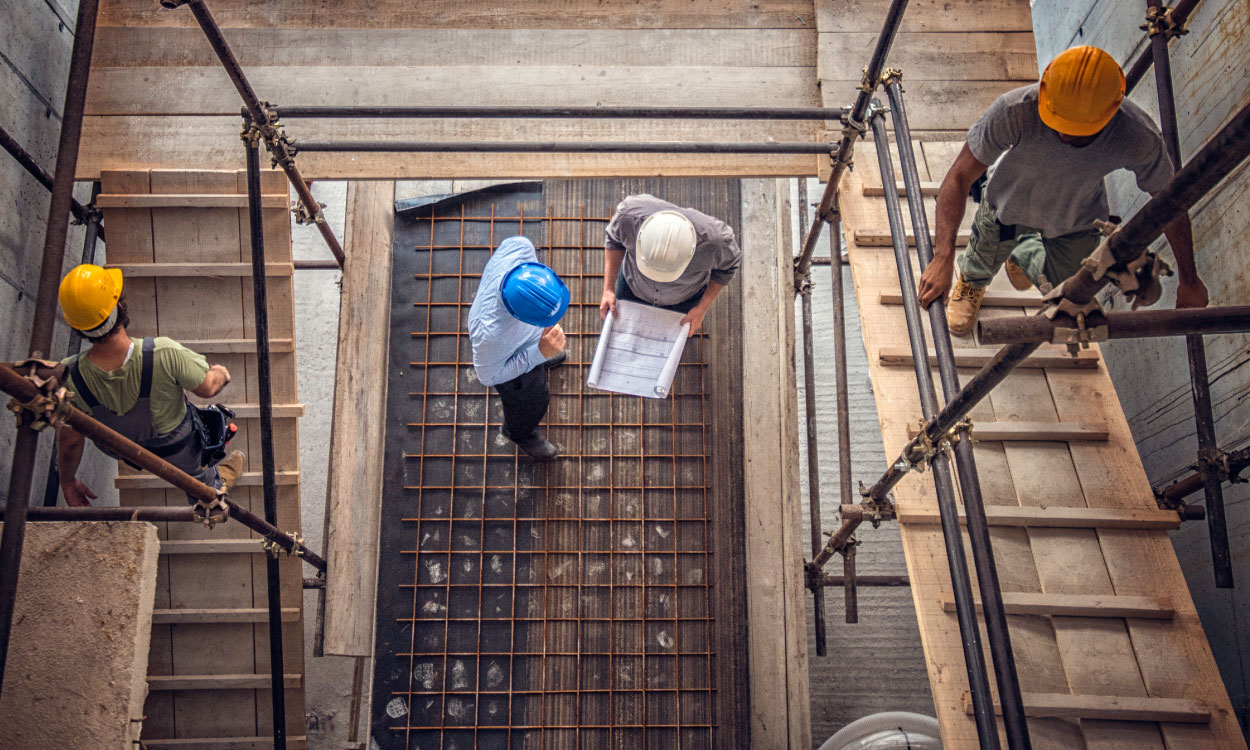Ways To Build A More Trusting Work Relationship With Your Builder

Trust is everything between a builder and their client. Not only does it lead to projects commencing, but it also facilitates a positive working relationship from thereon.
As more alerts are being raised in communities about the presence of rogue builders, it’s only natural for folks to have more scepticism about the types of professionals they’re coming into contact with. Many people now adhere to tighter spending practices, too, so there’s no room for wasted time or money today.
Even if one has hired a more trustworthy builder, those positive thoughts and feelings about one another must be sustained throughout the engagement. The ball is not entirely in the professional’s court, either, and you can play an active role in these proceedings as the client.
So, what are the best ways to build a more trusting work relationship with your builder? Keep reading for some answers.

Enquire About Coverage
Warranties are not a legal obligation, and not all insurance coverage is either. Still, any builder of upstanding repute will have these safeguards in place, anyway. It enables them to attract more clients, and mortgage lenders often insist on many of these arrangements too.
There’s no excuse not to have building warranties and insurance today. Specialist brokers like Buildsafe help firms find the best quotes on the market for free. Whether it’s structural warranties or tradesmen varieties, everything from tools to vans to new builds can be covered here. These measures are in place to protect the builder, but showing your interest highlights your commitment to a fair exchange that satisfies both of your interests.
Staying informed on these matters also reveals something about your thoughtfulness. After all, it shows that you’re aware of what the builders go through, what standards they must meet, and that you can view matters from their perspective. All of these qualities can give you the upper hand when negotiating the parameters of your project and help you be viewed as a more favourable client.
Establish a Contract
Once again, it’s best for there to be some documentation around your dealings. This is especially true regarding the presence of a written contract.
Rogue builders can often paint these arrangements as tedious admin that hinder rather than help. Nevertheless, it would help if you had a contract in place. Any reputable builder will respect your request and naturally fulfil those obligations.
There are many potential points of contention during a building project. Clear understandings can prevent these tensions from arising and establish favourable working conditions for all. In the contract, you can outline the project’s timetable, preferences of materials used, working hours, and anything else to the liking of you both.
Contracts can be fine-tuned from client to client, but it’s also a good idea to compromise where you can. After all, the builder is the expert, and they’ll have the experience to know what’s reasonable and what perhaps isn’t. The contract also protects their best interests and can ensure they don’t go over budget, for example. It’s for both of you, so try to treat it that way.
Adapt Expectations
Of course, there can always be some rare events a contract cannot account for. You mustn’t buckle when any unforeseen circumstances come into play.
Many unexpected factors can influence the timeline of your build project. Bad weather, personal emergencies on your side, and supply shortages and planning delays can sometimes occur, bringing everything to a stop. These situations must be resolved before the work can continue, and both parties need to understand that fact.
A bad reaction to delays can make things worse than they need to be. The last thing the process needs is arguments, so you might need to adapt your expectations at numerous points. Still, while keeping an open mind at points is important, it’s also vital that you don’t become too casual and careless about everything. A balanced attitude is needed.
If you’re worried about any inconsistencies resulting from the delays, dig up the old specifications plans for the building project. Is everything still moving in the right direction? Have any changes haven’t been agreed upon? If things have changed by mutual agreement, ensure the documentation is updated to reflect those amendments. These double-checks can keep the project on course and prevent misunderstandings.
Endeavour to be Forthcoming
Because unexpected problems can arise, you and your builder must discuss them openly. After all, communication is the foundation of any robust working relationship and maintains proactivity.
There are many ways to communicate effectively at work, and while you may not be ‘on the job’ as the client, you may well be in a workplace if the building site is at a place you live or frequently visit. Liaise with the builder with transparency and clarity.
If you have a concern that needs to be addressed, no matter how vague, it must be shared so the builder can deal with it. For instance, you may not always understand the builder’s jargon. Their use of it may be an oversight, as they shouldn’t expect you to know technical terms, so ask them to rephrase things like that if you’re caught off-guard.
At the same time, try not to waste their time. If you have a minor concern and you can see that the builder is in the middle of a strenuous task, it may be able to wait until that ordeal is over. Use your best judgement and common sense as needed.
It would help if you also made yourself available to be communicated with. The builder may have questions throughout the project too, and you should answer those as openly and as honestly as you can. Be sure to provide them with your contact number, even if you’re only away from the site sporadically while the project is underway. The more you can be there for each other, the better.
Conclusion
Adapting your perspective is the best way to build a more trusting relationship with your builder. Understand what the builder needs from you, rather than being a passive client expecting miracle workers to complete things. Understand their coverage needs, collaborate on contract requirements, strive toward flexibility where possible, and prioritise communication throughout the project. After that, a better working relationship is likely.







